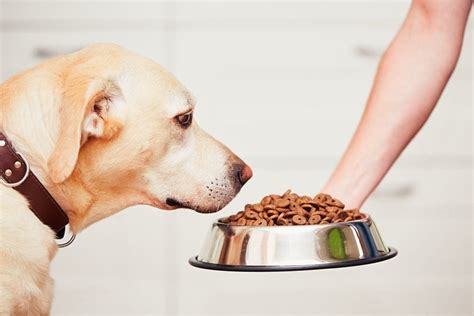Good digestion is crucial for your dog’s overall health and well-being. Just like humans, dogs need a balanced diet to keep their digestive system functioning properly. Whether your dog is dealing with occasional tummy troubles or you simply want to support their digestive health, choosing the right food can make all the difference. Here are some of the best types of food to improve your dog’s digestion:
-
High-Quality Protein
Protein is essential for your dog’s health, but the quality matters. Foods that contain high-quality sources of protein, such as chicken, turkey, or salmon, are easier on your dog’s digestive system. Look for dog food that lists specific animal protein as the first ingredient to ensure it’s digestible and nutrient-rich. -
Probiotics
Probiotics are beneficial bacteria that help maintain a healthy balance in the gut. Probiotic-rich foods can aid in improving digestion and reducing gas or bloating. Some commercial dog foods include probiotics, or you can add them in the form of supplements, like yogurt or specialized pet products. -
Fiber-Rich Foods
Fiber is vital for proper digestion as it helps regulate your dog’s bowel movements and supports healthy gut bacteria. Look for foods that include sweet potatoes, pumpkins, or carrots, which are natural sources of fiber that are gentle on the stomach and help keep things moving smoothly. -
Easily Digestible Carbohydrates
Carbohydrates should be easy for your dog to digest to prevent any stomach discomfort. Rice and oats are excellent choices because they’re gentle on the stomach and help soothe any digestive issues. Look for dog food that includes these simple carbs for easy digestion. -
Healthy Fats
Fats provide energy and support the absorption of essential nutrients. Omega-3 fatty acids, found in foods like salmon or flaxseed, have anti-inflammatory properties that can benefit your dog’s digestive system and improve overall gut health. -
Canned Dog Food for Sensitive Stomachs
If your dog has a particularly sensitive stomach, wet or canned food may be easier for them to digest than dry kibble. Canned food typically has fewer preservatives and a higher moisture content, which helps with digestion and hydration. -
Bone Broth
Adding bone broth to your dog’s meals can help support digestive health. It’s easy on the stomach and contains essential amino acids and minerals, which can help soothe an upset stomach and promote healing of the digestive tract. -
Limited Ingredient Diets
If your dog is prone to food sensitivities or allergies, consider a limited ingredient diet (LID). These foods contain fewer ingredients and focus on high-quality, digestible proteins and carbs. LID foods are ideal for dogs with digestive issues or food intolerances. -
Digestive Enzymes
Some foods or supplements contain digestive enzymes, which can help break down food more efficiently and reduce digestive upset. Papaya and pineapple are natural sources of digestive enzymes and can be added to your dog’s diet for a gentle boost. -
Fresh, Whole Foods
If you’re considering homemade meals for your dog, incorporating fresh ingredients such as chicken, turkey, carrots, pumpkin, and rice can provide excellent nutritional support for your dog’s digestive health. Just make sure the meals are balanced and consult your vet to ensure the right proportions of nutrients.
Supporting your dog’s digestive health is about more than just feeding them; it’s about choosing the right food and ingredients that promote gut health. By incorporating high-quality proteins, fiber, probiotics, and healthy fats into your dog’s diet, you’ll help keep their digestive system running smoothly and prevent uncomfortable stomach issues. Always consult with your vet before making significant changes to your dog’s diet to ensure it’s the right fit for their needs.
 PAWS AND WHISKERS PET CARE
PAWS AND WHISKERS PET CARE




